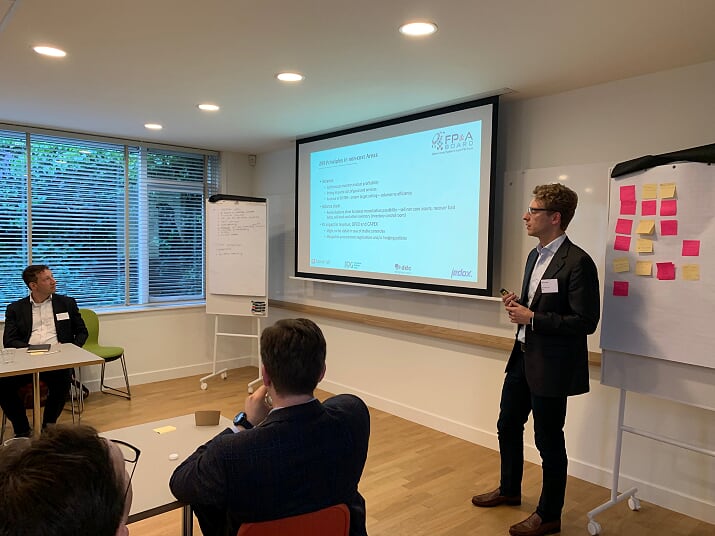 Although Zero-based budgeting was developed in the ’70s, due to modern technology, it has entered a new Era.
Although Zero-based budgeting was developed in the ’70s, due to modern technology, it has entered a new Era.
The 7th Amsterdam FP&A Board was held to discuss and answer questions such as: What is Zero-based budgeting? Who is using it in their day to day practice, and to what extent? What are the benefits and challenges in implementing ZBB?
The forum was sponsored by Jedox, DDCgroup, Robert Half and IWG.
Over 30 professionals from leading organizations, came together in Spaces building at Herengracht, Amsterdam and discussed the benefits and challenges around ZBB. At the meeting, Alexey Savelyev, Senior Director FP&A, Reporting and Business Systems at VEON, and Paul Harris, Director of Finance, EMEA at Tesla presented on their previous experiences with ZBB in multinational corporations and the importance of culture.
Zero-Based Budgeting: benefits and challenges
As team members introduced themselves, they were asked if they were using ZBB, and to name in one word what the biggest advantage and disadvantage is.
In summary, the positive points were mentioned:
- Brings a fresh perspective
- Increases financial acumen
- Aligning to strategy/purpose
- Ability to ask challenging questions
- Can lead to material cost savings.
As negatives were often mentioned:
- Resource intensive
- Time-consuming
- Can be rigid and exhaustive
- Requires financial maturity.
When asked about key challenges during the implementation or utilization of ZBB, it seemed that the maturity of the FP&A organization, time consumption and politics to be the key challenges despite the industry or size of the organization. Participants also split into groups to discuss further on the challenges. In addition to the challenges that were previously discovered, technology, data integrity, amount of stakeholders and mindset change were also potential obstacles for a successful ZBB implementation.
Case Studies: Two Presentations

The first speaker, Alexey Savelyev, emphasized the importance of challenging the status quo and critical assessment of spend. He could achieve the best results for the organization due to benchmarking and identification of alternatives for spend. Through ZBB, there was a visible financial improvement and even unplanned positive results such as risk mitigation in certain categories.

The second speaker, Paul Harris, mentioned his experience with ZBB and discovery of inflated budgets that were taken for granted. This process led to more financial sound planning that was more in line with business needs through validated resource allocation. Additionally, he gave specific examples of how cultural environment can both be challenging or stimulating to the ZBB process.
As the final event of the evening, the participants split into three groups to discuss the key steps in ZBB implementation from the perspective of people, technology/analytics and business process.
Small Groups Discussion
People and culture play a key role in ZBB where a tone needs to be set and endorsed on the top level in the beginning. There also needs to be a base level of financial knowledge and understanding, and stakeholder engagement as the foundation. It was also mentioned that the demonstration of benefits from relatable examples helps the acceptance and FP&A needs to play the role of the facilitator rather than the decision maker.
Technology and Analytics are more important than ever for ZBB as the advancements allow for more analytics capabilities and less time spent on data collection and consolidation. Data mining and predictive analytics form the backbone of this process. That being said, it is crucial to identify the drivers and discuss them to utilize these tools for a ZBB model based on drivers.
Business processes for ZBB require adaptable people to make it work. Collaboration between stakeholders and the right culture are some of the key components to define and implement these processes. The processes need to be defined from a clean slate as there will be discoveries of previously unidentified opportunities both in revenue and expense drivers.

Conclusion
Despite the numerous challenges of Zero-based budgeting, with the right mindset, top-level support, tools and processes, success can be achieved where benefits far outweigh the initial time investment.
Let us know if you have any examples from your organization on successful implementation or specific challenges on ZBB at larysa@fpa-board.com






